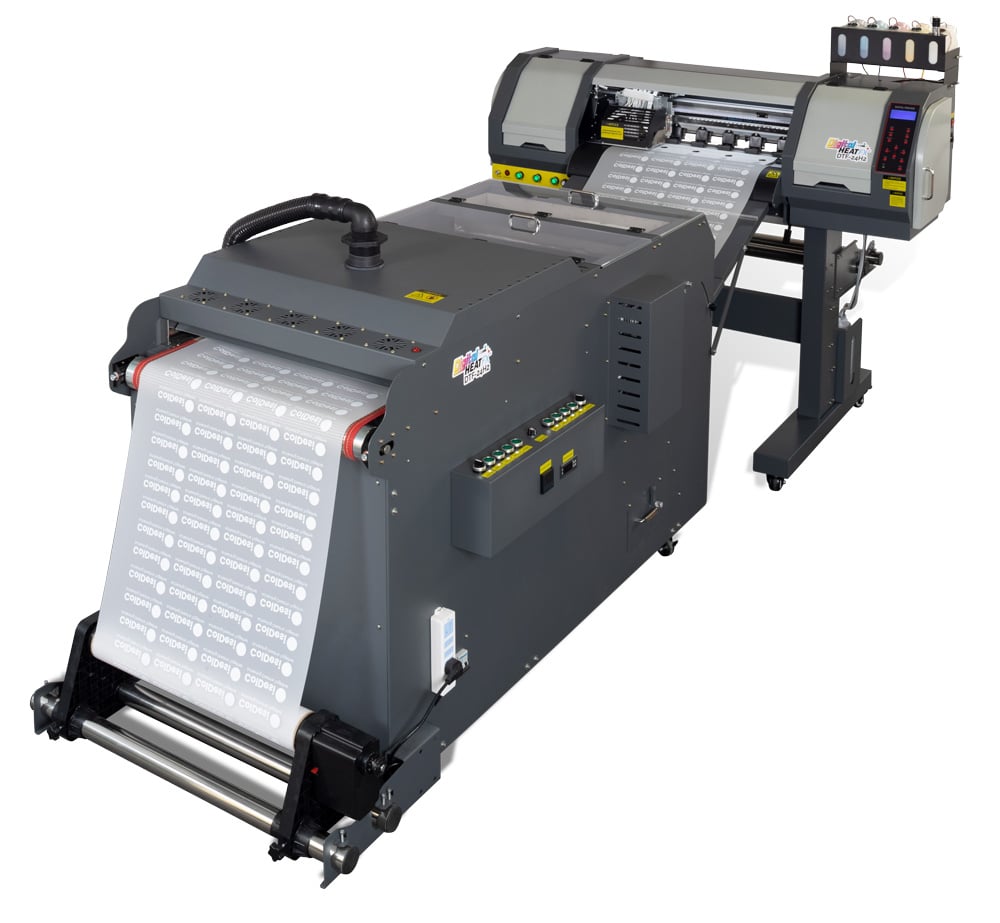In the custom embroidery business, you’ll find a lot of home based businesses. Why? Because it can provide people with opportunities to earn extra income and/or take control of their time and income.
It can be very successful, if it’s managed the right way. Too often people jump into a home based embroidery business without taking a good look at what it takes to build a business (such as Hidden Costs and Common Mistakes).
The first question you want to ask yourself when starting your embroidery business is your brand. What is your brand? Are you presenting yourself as a home-based business? Or are you wanting to have a more professional persona?
Depending on what type of customers you want to attract, letting them know that you’re a home based business can benefit you. It may make customers more comfortable in doing business with you. It may be part of your strategy to keep overhead low and you’re transparent about that with your customers.
If you want to present a more professional image, you’ll want to present yourself as a commercial embroidery business. This means you won’t want customers coming by your house to pick up orders, you’ll want to deliver them in person to their business or ship them.
As you grow or your customer base changes you can adjust your brand later, but it’s important to determine where you want to start.
To help you build a successful home-based business, we’ve put together a few points for you to take into consideration as you start your business.
Legality
Before you buy your equipment you’re going to first need to find out whether or not you’re legally allowed to start a home based business where you live. While in the embroidery business you don’t have to worry about the chemical disposal of other custom apparel businesses, there are a few other things to consider.
Each city or county will have its own rules. You may also have rules particular to your community, such as in a townhouse association. A few of the questions you’re going to want to ask/research are:
- What does it take to get into business in (your state)?
- Do need to get a license in my county?
- Are there any specific rules/laws for my city?
- Are there any specific rules for my community? (If you have a neighborhood association)
While the legality of the home based business shouldn’t be something that keeps you up at night, before you invest your money into a single or multi-head embroidery machine you’re going to want to ensure you’ve got everything covered. And our best piece of legal advice for this – get it in writing. If you call up your neighborhood association, and they say “Yes, it’s fine,” let them know you’ll follow up with an email or document for them to sign off on. Or ask if that information is available online anywhere. Depending on your investment into embroidery equipment, you may also want to hire a lawyer to go over documents for you. If you’re investing over $50,000 in a multi-head machine, it could be worth the few hundred dollars to ensure there won’t be any unpleasant surprises down the road.
Physical Requirements
These questions revolve around your available space and what you want to do – single versus multi-head.
- How much space are you going to need?
Consider everything you need to run your business: counter/work space, storage space, room for your computer, a place to sit, embroidery machine. Is it going to all fit in the spare room? Do I need to use the basement or garage? - Do you need a separate outlet or breaker?
How much power does the embroidery machine need to run? What if you ran it every day, eight hours a day? Should you run a dedicated line? Get the specs on the machine and then ask an electrician to give you more information. - Will the embroidery machine fit through the door?
If you’re running a single-head machine you likely won’t encounter any issues. But if you plan on running a 6 or 12-head embroidery machine, it will likely not fit through a regular sized door. So you’ll either need to make adjustments, or run it in a garage or separate workshop.
All of these are easily solvable problems, and you may find as your business grows that even if they are not challenges right now, they may be down the road, and so taking into consideration now, will help set you up for future success.
Work-Life Balance
When the place you live, also becomes the place you work, there are going to be some distinct challenges. This will vary based on your family/relationship situation – a person with school aged kids is going to have different challenges than someone who lives by themselves.
If you live by yourself, you may be your own biggest distraction because it’s all about personal focus. When you only have yourself to answer to it can become easy to roll out of bed whenever you feel like, take a long lunch, finish early, etc. Unfortunately this means that your eight hour workday quickly shrinks down into a 5-6 hour work day and you didn’t accomplish everything you need in order to build a successful business. You have to establish guidelines and a schedule. Otherwise a home-based business can start to be more of a part-time job or hobby project. Becoming a master of embroidery or a master of DTG (direct to garment) techniques can help.

If you have a family, oftentimes interruptions are unavoidable. Whether it’s the kids getting home from school or an argument breaking out that distracts you from your work day. How can you work around that? Perhaps you split your day in half, so you work from 8:30-3 while the kids are in school, you spend from 3-6 with them, and then you go back to finish up a few hours of work from 6-8. If your kids are still at home (or home from school for the day), make sure you’ve talked to them about your job and that they’re not allowed in the office or shop while you’re working. Creating that distinction for them between work and home is important.
If you have kids or a spouse it’s also really important to have a work computer. One that no one else is allowed to use (unless they’re helping you with the business). It’s absolutely essential for two reasons:
- You need to be able to do work, while they’re on another computer doing homework
- You don’t want anyone accidentally deleting files or modifying your computer
This computer is going to be something you need to consider when planning your budget and expenses to start your business.
Customer service
We mentioned it briefly at the start of the post, but how are you going to present yourself to your customers? How do you handle customer service?
If you’re branding yourself as a home based business, you may allow customers to come directly to your house to pick up orders from you. If so, you’re going to first make sure that’s allowed if you’re in a community association. Or coordinating with customers to ensure you’ll be home. You may also want to ensure your house is presentable to make customers feel comfortable coming to your home.
If you’re presenting yourself as a commercial embroidery business, having customers come to your door won’t be part of your brand.
How you handle phone calls is also something to consider. You may be tempted to just use your cell phone, and you can, but one thing to consider is how will you distinguish between clients and personal calls? One thing we might recommend is a telephone service. With a telephone service you get a separate business number, that is linked to your cell phone. So whenever someone calls the business it rings on your cell phone, but the display shows you that it’s coming from the telephone service and so you can answer it with your business greeting. If you’re presenting yourself as a commercial business, this will be incredibly important. These telephone services also provide you with a separate voicemail, and the ability to set operating hours, and so clients aren’t ringing your phone at all hours of the night.
You can also consider a reception service. This just adds a more human connection, and the receptionist will let you know who’s calling and so you can choose to take the call, or have them take a message for you.
Business address
Your business address can be tricky, because this information often has to appear on your customers invoices, and it’s where you’ll have your supplies shipped to. While you may believe that your home address will do, you may want to take into consideration that packages from FedEx and UPS have to be signed for. If you’re out growing your business by word of mouth, or at your child’s school play, you won’t be there to sign for things. What you may want to consider is setting up a P.O. box service with FedEx or UPS. Added bonus is that you can call ahead to see if any packages or mail arrived for you without having to go all the way down there.
Employees
When you’re just starting out your home-based business, chances are you won’t have any employees right away (other than your spouse, kids, or close relatives). But depending on your business model, you may choose to hire someone part-time. Managing this can be tricky.
You first have to ensure that both yourself and the employee are comfortable with the situation because they will be entering your home. There may be other factors to take into consideration like allergies to animals. If you have a workshop or a garage it will be easier to create that separation, but working out or a spare room or basement means they are entering directly into your home. And so if you and your family are not sure that’s something you’re comfortable with, then hiring employees will be something to consider later when you’ve grown and are ready to move out to a commercial space.
Working from home can be both successful and rewarding. It can provide you with a little more flexibility while keeping your overhead low. It can also be a great way to get the whole family involved. It is, like any business, not without its challenges, and so it’s important to be aware of some of them, and establish solutions to ensure you have a successful home-based business.






